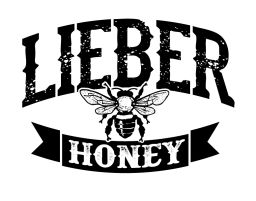Helps with allergies
Honey has anti-inflammatory properties, and allergies are an inflammatory response. When you ingest small amounts of local raw honey, your body will produce antibodies to the pollen in it. This means that your body will build up a defense against that allergy, over time.
It is important to ingest honey that is from your local region as this is the honey that will contain pollen spores from the local flowers. Also important is that the honey be raw. Honey that is not raw has been heated, which destroys many of its benefits.
By taking a little bit of honey daily (about a teaspoon), your body will build up a natural immunity to the allergens of your region.
Keep in mind that you should begin taking honey two to three months before allergy season to give your body time to build that immunity.
For Scrapes and Burns
Applying honey will help disinfect wounds from bacteria. In fact, honey was used to fight infection therapeutically until penicillin came into use in the 20th century.
Antioxidant Memory Support
Antioxidants feed the cells of your brain the food it needs to thrive. There are plenty of antioxidants in honey, which can help keep your brain in better shape. Research shows that honey may help postmenopausal women’s memory stay sharp by simply taking one spoonful each day. And adding a teaspoon to a cup of tea each day is an easy and refreshing way to support the memory and brain health of anyone.
Improves Skin
Its anti-bacterial qualities are particularly good for the skin. When blended with the other ingredients, honey can also be moisturizing and nourishing. You can create your own lotions by blending honey with almond or coconut oil and adding essential oils of your choice. There are many recipes available on the internet. Honey is a humectant ingredient that will help attract moisture to your hands, feet, and entire body. You can also add it to shampoos, conditioners, and moisturizers for wonderful results.
Immune System Support
Regular consumption of honey supports the immune system because of its anti-bacterial and antioxidant properties. It also helps cleanse and build up your digestive system, which is essential for optimal health.
Probiotic
Some varieties of honey possess large amounts of friendly bacteria. This includes up to 6 species of lactobacilli and 4 species of bifidobacteria. This may explain many of the therapeutic properties of honey.
Cough Suppressant
The honey coats the throat and keeps it calm by soothing the nerve endings that protect the throat. Two tablespoons of honey can be as effective as commercially prepared cough syrup without the dyes and other ingredients that you may not want.
In fact, the World Health Organization (WHO) gives credence to honey as a demulcent (something that relieves irritation or inflammation), which helps alleviate a cough due to the honey acting as a protective film over the throat.
Hangover
Honey helps your liver speed up the oxidation of the alcohol, which helps get the toxins out of your body faster. That headache is caused by the liver’s inability to process all of the toxins from the quantity of alcohol you consumed. It takes time, and we suggest not over-imbibing, but honey can help speed up that process.
Honey for Love
Researchers have found that honey helps men produce more testosterone and helps women with estrogen levels. Have some honey with your honey!
Ancient Healing
Honey has been used in Ayurvedic medicine in India for at least 4,000 years. Honey is referred as “Yogavahi” since it has a quality of penetrating the deepest tissues of the body. When honey is used with other herbal preparations, it enhances the medicinal qualities of those preparations and also helps them to reach the deeper tissues.
More Honey Facts
There are at least 40 types of honey, and each one has a distinctive taste and unique properties. Different honeys have different flavonoid profiles, depending on the floral source of the nectar. Darker honey tends to have higher antioxidant levels.
Examples of Types of Honey:
- Alfalfa
- Blueberry
- Buckwheat
- Clover
- Manuka
- Orange Blossom
- Wildflower
Honey Suggestions
To reap the most benefits from your honey, make sure it is pure and raw. Raw honey contains vitamins, minerals and enzymes not present in refined honey.
Honey Cautions
Do not feed honey to infants. Spores of Clostridium botulinum have been found in a small percentage of honey in North America. This is not dangerous to adults and older children, but infants can have a serious reaction of illness in the first year. Do not add honey to baby food or use as a soother to quiet a fussy or colicky baby. Most Canadian honey is not contaminated with the bacteria causing infant botulism, but it’s still best not to take the chance.
Honey is a sugar, so consume it in moderation. It has a high caloric value and will put you on a sugar high and low.
